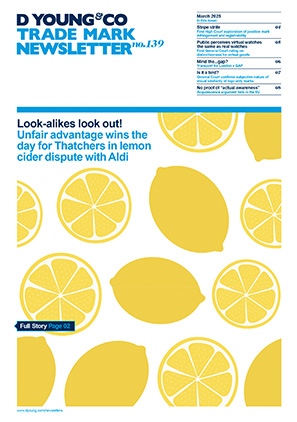UKIPO address for service: Is an email address enough?
A recent appeal to the appointed person in relation to a UK invalidation action has questioned whether official UKIPO papers sent only by email have been validly served.
The UKIPO had cancelled a registration in circumstances where (it stated) invalidity papers had been sent to the registrant by both email and registered mail and no defence had been filed. In fact the papers had been sent by email only, and that email had not been read by the recipient (it went to a spam folder and was then auto-deleted).
Rule 79 of the Trade Marks Rules 2008 provides that electronic delivery of UKIPO documents is deemed to be effected by transmitting an electronic communication containing the document to an address provided to the UKIPO by the recipient as an address for the receipt of electronic communications. Unless the contrary is proved, such delivery is deemed to be effected immediately upon transmission of the communication.
The appointed person noted the prevailing view (albeit subject to criticism and pressure for modernisation) that an email address does not qualify for recognition as an “address for service” because it does not designate any particular premises at which papers intended for a particular person can with confidence be physically delivered. The Supreme Court had also held that electronic service needs to be an organised (rather than an ad hoc) process.
Despite the apparently clear guidance in the Trade Mark Rules, and the fact (which was not established) that the registrant may have given an email address to the UKIPO when filing their application, the appointed person noted that he was not satisfied that the Trade Mark Rules enabled an email address to be used by the UKIPO as an address for service. As such, he held that the invalidity papers had not been correctly served, and the case was remitted to the UKIPO for further processing.
The case is reminiscent of the recent MARCO POLO decision (from the same appointed person) which held that notifications to holders of UK designations of international registrations had not been validly served in a number of cases.

